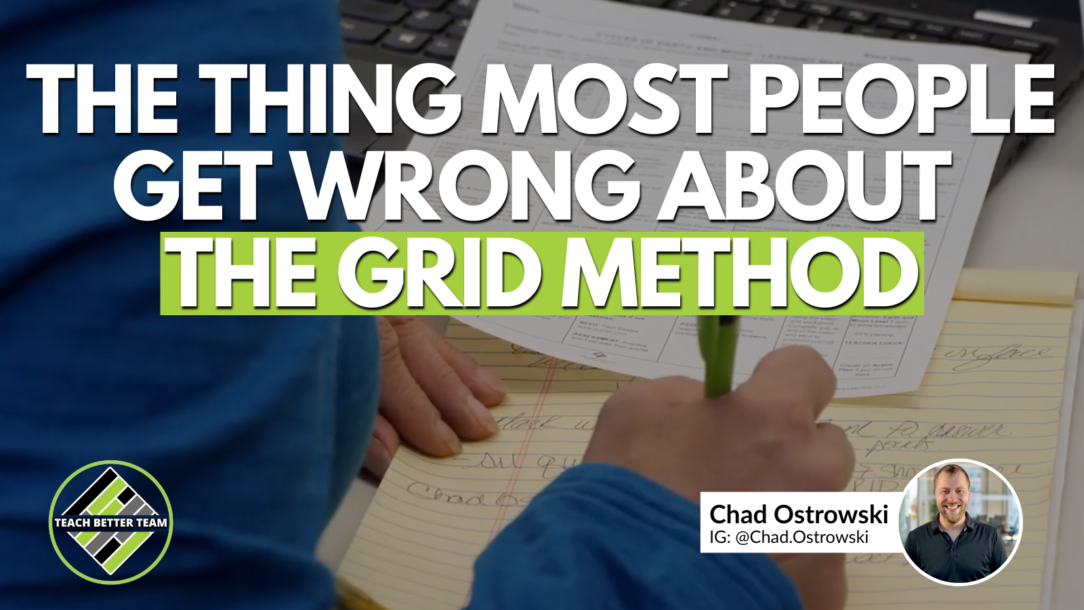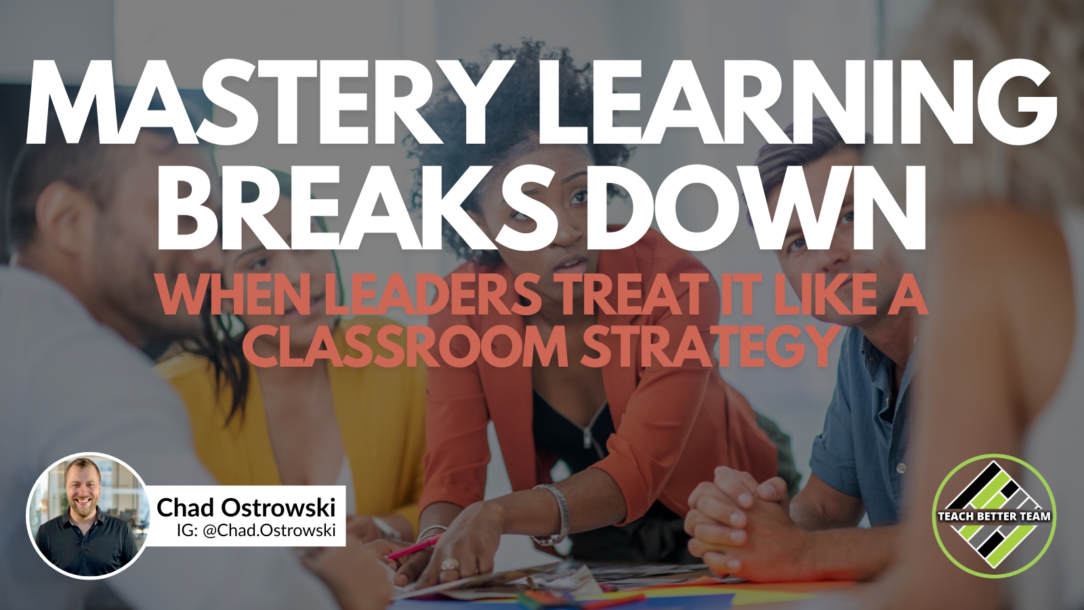TL;DR (Too Long, Didn’t Read The Grid Method is often misunderstood as a curriculum when it’s actually a mastery-based framework.This post explains what The Grid Method is and what it is not, why it was created, and how it helps teachers organize existing curriculum to support mastery learning, differentiation, and student ownership without adding more work or burning out. The … Read More
What Students Experience When Instruction Lacks Coherence
Article Summary Instructional misalignment is most deeply felt by students, not adults. This post explores what school feels like to students when instruction lacks coherence across classrooms. It explains why inconsistent expectations create cognitive overload, how fragmentation gets mistaken for personalization, and why leadership-driven instructional frameworks are essential for creating connected learning experiences. Instructional misalignment impacts students more than anyone … Read More
You Can’t Scale Trust Without Structure
Article Summary Trust matters in schools, but trust alone doesn’t scale. This post explains why trusting teachers without providing clear structures often leads to inconsistency, confusion, and burnout. It explores what trust without structure looks like in practice, why structure isn’t about control, and how aligned systems allow trust to actually function across classrooms, schools, and districts. Trust is essential, … Read More
Mastery Learning Breaks Down When Leaders Treat It Like a Classroom Strategy
TL;DR (Too Long;Didn’t Read) Mastery learning doesn’t fail because of teachers. It fails when systems don’t support it.This post explains why mastery learning breaks down when it’s treated as a classroom-level strategy instead of a system-wide commitment. It explores what teachers are really experiencing, the leadership blind spots that undermine mastery, and what schools must design for if mastery learning … Read More
Eliminating Student “Escape Routes” to Foster Accountability
TL;DR (Too Long, Didn’t Read) Students often disengage when systems allow them to opt out of learning without consequence. In this post, Chad Ostrowski explores how traditional instructional structures can create hidden “escape routes” and offers practical strategies to increase accountability, promote reflection, and foster true mastery. By removing opportunities to avoid effort, teachers can build classrooms where perseverance and … Read More





